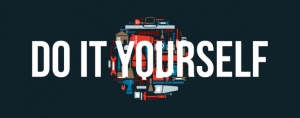
SoftSettle Support
Debt settlement is definitely an activity consoling one’s fainted heart. Doing it yourself requires persistence, hard work and the willingness to deal with debt collectors for months or years.
Defaulters may be under the impression that debt settlement usually is brutal. Negotiating down a debt with a creditor, rather than hiring someone else, can save you money and put you in control of the settlement process. However, many consumers shy away from DIY debt settlement, chiefly because they want to avoid interacting with banks, other creditors and collection agencies, experts say.
The first question should be whether debt settlement is the best option for you. To answer that question, you need to look at your total financial picture and alternatives such as bankruptcy or a family loan, noting that debt settlement typically will severely damage your credit.
Debt settlement can damage your credit severely when creditors and collection agencies report delinquent payments, collections and settlements for less than the full amounts owed on accounts.
Soft Settle encourages people to settle their debts DIY. If you decide to try to settle, you’ll need to decide whether to do it yourself. The advantages of DIY debt settlement include:
Creditors might go easier on you. Creditor may find to deal easier with you while they may be aggressive with debt settlement companies and even dare to file suit against you. Their lenient attitude towards you may probably reduce the total debt reasonably; so that you may have a target to settle is quite reasonable.
Another advantage behind DIY is it might motivate you to get your finances in order. So far as you are ready to negotiate directly with creditor and you become more accommodative and collaborative could bring the creditor to a level where you can set your financial commitments in a proper manner.
Soft Settle provides channel where you can apply the mode of negotiations as referred above, so that you would be collaborative in negotiating which prompts the virtual neutral to decide things in your favour and it never attempts to reduce the claim of the creditor. Hence the win-win proposition is accessible.

